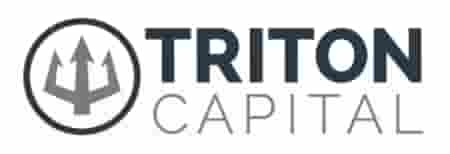| Lender | NerdWallet rating | Best For | Max loan amount | Min. time in business | Min. interest rate | Term length | Learn more |
|---|---|---|---|---|---|---|---|
| with Fundera by NerdWallet | Read expert review | Low-interest heavy equipment financing | $5,000,000 | 24 months | 5% | 10 to 25 years | with Fundera by NerdWallet |
| with Fundera by NerdWallet | Read expert review | Heavy equipment financing for startups | $150,000 | 6 months | Undisclosed | 24 months to 5 years | with Fundera by NerdWallet |
| with Fundera by NerdWallet | Read expert review | Heavy equipment financing for bad credit | $250,000 | 24 months | 5.99% | 12 months to 5 years | with Fundera by NerdWallet |
 | Read expert review | Heavy equipment financing with no down payment | $10,000,000 | 24 months | 5.99% | 24 months to 7 years | |
| with Fundera by NerdWallet | Read expert review | Same-day heavy equipment financing | $500,000 | 12 months | Undisclosed | 24 months to 5 years | with Fundera by NerdWallet |
 | Construction vehicle financing | $1,000,000 | 24 months | Undisclosed | Undisclosed | ||
 | Read expert review | Established businesses | Undisclosed | Undisclosed | Undisclosed | Undisclosed |
heavy equipment financing companies: More details
U.S. Small Business Administration: Best for Low-interest heavy equipment financing
SBA 504 loans are designed specifically for the purchase of large fixed assets. These loans offer low interest rates and long repayment terms.
SBA CDC/504 loan
with Fundera by NerdWallet
Pros
- Low down payment required.
- Repayment terms of up to 25 years.
- Competitive interest rates.
Cons
- Must meet job creation or public policy goals to qualify.
- Longer processing times than online lenders.
Pros
- Low down payment required.
- Repayment terms of up to 25 years.
- Competitive interest rates.
Cons
- Must meet job creation or public policy goals to qualify.
- Longer processing times than online lenders.
with Fundera by NerdWallet
National Funding: Best for Heavy equipment financing for startups
If you have at least six months in business, you may qualify for equipment financing from National Funding.
National Funding - Equipment financing
with Fundera by NerdWallet
Pros
- Funding in as little as 24 hours.
- Prepayment discounts available.
- Offers loans to startups and borrowers with bad credit.
- No collateral or down payment required.
Cons
- Charges a factor rate that makes it more difficult to compare costs with other lenders.
- Requires higher annual revenue than other online lenders.
- Can't be used to built business credit.
- Charges an origination fee.s a factor rate that makes it more difficult to compare costs with other lenders.
Pros
- Funding in as little as 24 hours.
- Prepayment discounts available.
- Offers loans to startups and borrowers with bad credit.
- No collateral or down payment required.
Cons
- Charges a factor rate that makes it more difficult to compare costs with other lenders.
- Requires higher annual revenue than other online lenders.
- Can't be used to built business credit.
- Charges an origination fee.s a factor rate that makes it more difficult to compare costs with other lenders.
with Fundera by NerdWallet
Triton Capital: Best for Heavy equipment financing for bad credit
Triton Capital offers construction and heavy equipment loans to borrowers who have a minimum credit score of 580.
Triton Capital - Equipment financing
with Fundera by NerdWallet
Pros
- Can fund within one to two business days.
- No prepayment penalty.
- Flexible repayment options: monthly, quarterly, annually or semiannually.
Cons
- Charges an origination fee.
- Requires higher annual revenue than other online lenders.
Pros
- Can fund within one to two business days.
- No prepayment penalty.
- Flexible repayment options: monthly, quarterly, annually or semiannually.
Cons
- Charges an origination fee.
- Requires higher annual revenue than other online lenders.
with Fundera by NerdWallet
JR Capital: Best for Heavy equipment financing with no down payment
With JR Capital, you can finance a variety of construction and heavy equipment purchases — no down payment required.

JR Capital - Equipment financing
Pros
- Funding available within 48 hours.
- Competitive rates and repayment terms.
- Flexible payment options available, including deferment options for certain industries.
- No down payment required.
- Can be used to build business credit.
Cons
- Must have good credit to qualify for no prepayment penalties.
- Charges an origination fee.
Pros
- Funding available within 48 hours.
- Competitive rates and repayment terms.
- Flexible payment options available, including deferment options for certain industries.
- No down payment required.
- Can be used to build business credit.
Cons
- Must have good credit to qualify for no prepayment penalties.
- Charges an origination fee.
Balboa Capital: Best for Same-day heavy equipment financing
If approved, Balboa Capital can provide construction and heavy equipment funding within the same day.
Balboa Capital - Equipment financing
with Fundera by NerdWallet
Pros
- Multiple financing options available.
- Fast funding and simple application process.
- Accepts borrowers with fair credit.
Cons
- Lack of pricing information on website.
Pros
- Multiple financing options available.
- Fast funding and simple application process.
- Accepts borrowers with fair credit.
Cons
- Lack of pricing information on website.
with Fundera by NerdWallet
Commercial Fleet Financing: Best for Construction vehicle financing
Commercial Fleet Financing specializes in vehicle and truck financing. Through CFF, you can purchase dump trucks, excavators, dozers, mixer trucks, concrete plants and cranes, among other options.

Commercial Fleet Financing - Equipment financing
Pros
- Offers specialized experience in trucking and construction industries.
- Can fund applications as fast as 24 hours.
- Established businesses may not need to provide a personal guarantee.
Cons
- Borrowers with lower credit scores may need to provide a 20% down payment.
- Interest rates not disclosed on the website.
Pros
- Offers specialized experience in trucking and construction industries.
- Can fund applications as fast as 24 hours.
- Established businesses may not need to provide a personal guarantee.
Cons
- Borrowers with lower credit scores may need to provide a 20% down payment.
- Interest rates not disclosed on the website.
Wells Fargo: Best for Established businesses
Wells Fargo offers a robust construction equipment financing program, with industry specialists available to help you find the best option for your needs. You’ll likely need multiple years in business and strong credit to qualify.

Wells Fargo - Commercial equipment financing
Pros
- Offers lease options in a diverse array of industries.
- Can provide specialized customer experience.
Cons
- Qualification requirements and interest rate information not available on website.
- Need annual revenue of $25 million plus to be eligible.
- Will likely have to visit a branch location to apply.
Pros
- Offers lease options in a diverse array of industries.
- Can provide specialized customer experience.
Cons
- Qualification requirements and interest rate information not available on website.
- Need annual revenue of $25 million plus to be eligible.
- Will likely have to visit a branch location to apply.
What is heavy equipment financing?
How does heavy equipment financing work?
Construction and heavy equipment financing vs. leasing
- Payments. Equipment leases typically have lower monthly payments than equipment loans. You will, however, usually pay more over the course of the lease than you would with a loan.
- Ownership. With financing, you own your equipment at the end of the term. With a lease, on the other hand, the lender still owns the equipment. You may have an option to purchase it, or start a new lease agreement.
- Down payment. Equipment financing usually requires a down payment, which is not usually the case with leasing.
- Lifespan of equipment. Whereas your heavy equipment may become outdated during the loan term, leasing allows you to update your equipment once the lease concludes.
Where to get heavy equipment financing



How to finance heavy equipment
1. Evaluate your financing needs
2. Review your business’s qualifications
3. Find the equipment you want to purchase
4. Compare heavy equipment financing companies
5. Gather your documents and apply
- Basic information about you and your business.
- Personal and business bank statements.
- Personal and business tax returns.
- Business financial statements.
- Down payment amount.
- Equipment quote.

Frequently asked questions
How Fundera by NerdWallet works
Fill out one simple application
Answer a 3-minute questionnaire about your business to get personalized lending options. It’s free and won’t impact your credit score.
See your business loan options
Compare interest rates and repayment terms to choose the best product for your needs.
Get your loan
If the lender approves you, you’ll sign closing documents in order to receive funds. Some lenders can approve and fund loans within one business day.






